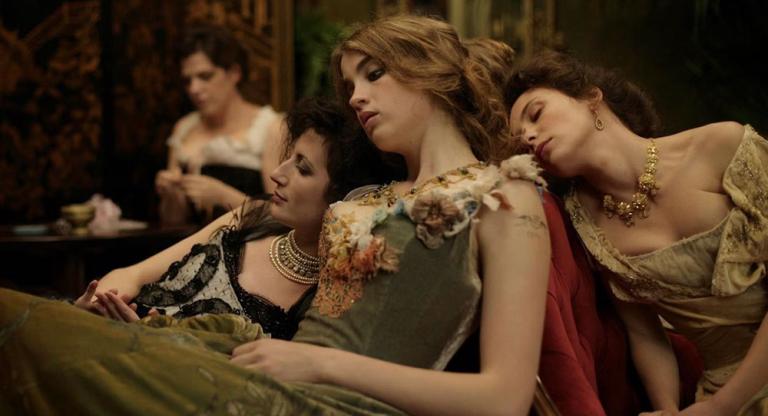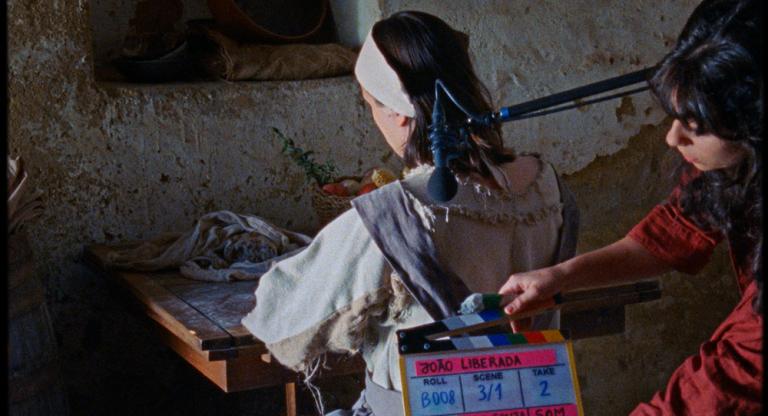
Monte Hellman’s stunning 1971 film Two-Lane Blacktop is a loving ode to the practitioners of an art. “The driver” and “the mechanic” (James Taylor and Dennis Wilson) are misanthropic street racers who tinker their way across the country in a ’55 Chevy, which has been souped up and stripped down of anything that could get in the way of speed, like glass windows and heat. They challenge and defeat every amateur and wannabe they encounter, and they win enough money to keep on driving.
They gain a companion, “the girl” (Laurie Bird), who wanders into the backseat of the Chevy at a diner parking lot near Needles: “Which way we going?” “East.” “That’s cool. I never been East.” The film functions as a belated homage to the real and imagined cultural moment in which this free-wheeling exchange would have been typical, already speeding past. Throughout the film we hear diegetic snatches of song suggesting the counterculture that was being corporatized by 1971: “Me and Bobby McGee” sung by Kris Kristofferson, “Moonlight Drive” by The Doors and Arlo Guthrie singing “Stealin’.” The girl, forced to sit in the back seat and listen exclusively to talk of spark plugs, valves and fan belts, wonders, “What is this? Some kind of masculine power trip?”
Warren Oates is fantastic as a chump driving a sparkling new 1970 Pontiac GTO, glinting bright orange, “one of them Detroit machines.” He denigrates the Chevy as “homemade stuff,” the driver and mechanic as “small town car freaks,” and agrees to race them all the way to DC (mostly via Route 66, naturally), with the cars themselves at stake. James Taylor is confident: “There’s a lot of cars on the road like yours. They get to look all the same. They perform about the same.”
Finding herself in the stands of some godforsaken race track in Tennessee, the girl looks around and realizes that she’s accidentally wound up back in the proverbial heartland. From then on she’s looking for a new ride and farer-out times: “San Francisco is groovy. Or Denver. I was in Seattle once. I ate a lot of fish and sprained my ankle.” James Taylor doesn’t want to let the girl go, and at one point he drives the Chevy’s engine too hard in pursuit of her, prompting Wilson to cry out, “She’s gonna burn you!” We don’t know if he means the girl or the car.
The driver, mechanic, girl and GTO form shifting allegiances and end up playing musical cars as the film’s narrative fades away, supplanted by the existential loveliness of engine noise, things just passing by and achingly charming displays of human folly. When Oates isn’t fantasizing aloud for hitchhikers, the dialogue in the film is restrained to abstraction: “Here we are on the road”, “Yeah, that’s where we are alright,” and, by way of a goodbye, “I sure did talk to you.” “I sure did see you.” 1971’s nostalgia for 1969 feels so good, and Hellman’s sense of humor is sharp and exquisite. Oates tries to get the girl to stay with him in the GTO with: “They’re not for you. All they think about is cars.” “Where would we go?” she asks. He replies, “Driving.”


